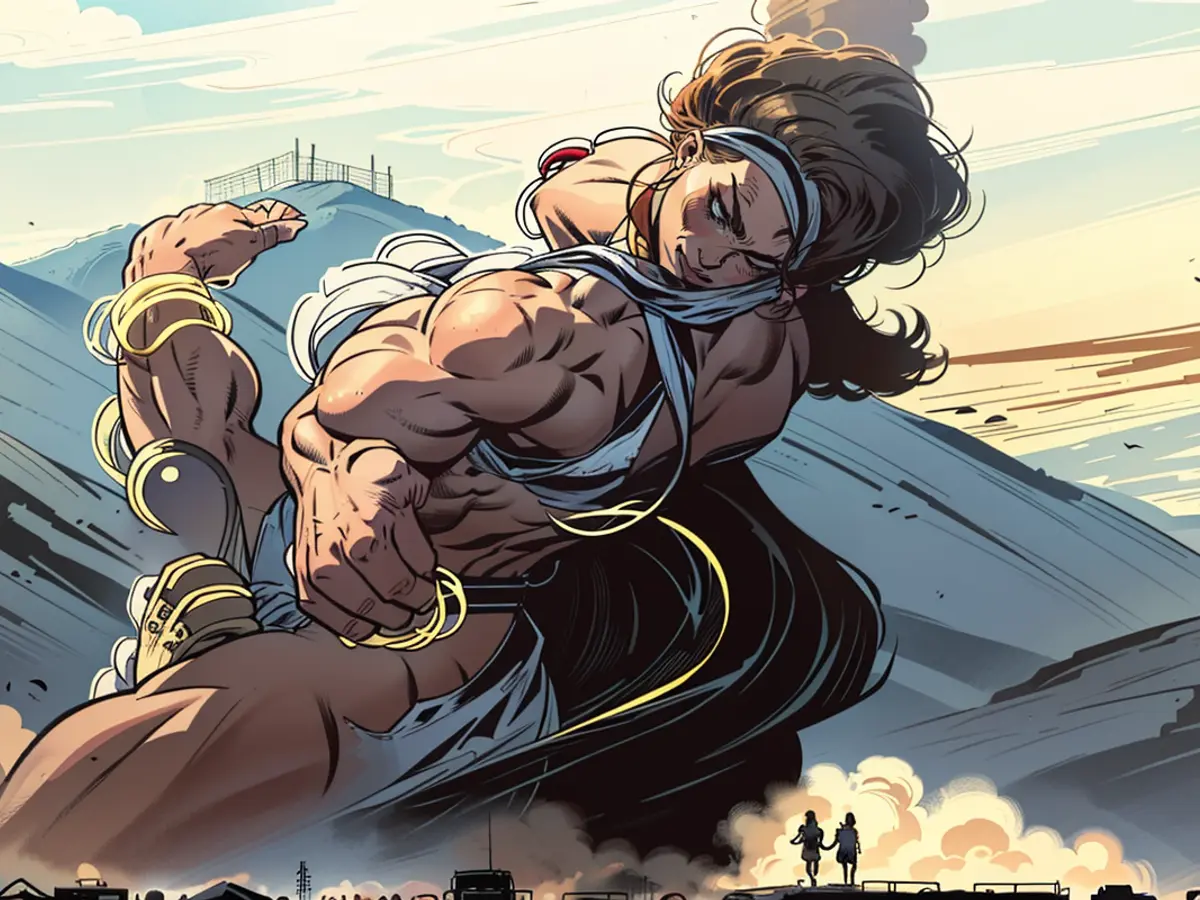Escalating border clashes with Lebanon: Recent Hezbollah offensives target Israeli northern regions
Israeli military announced that approximately 15 projectiles were launched from Lebanon towards the vicinity of Kiryat Shmona in northern Israel on a given day. Some of them were intercepted by the air defense system, and the army retaliated with artillery fire on the launch sites. The Israeli military is said to have attacked Hezbollah militia positions in southern Lebanon the night preceding this event.
Lebanese state media reported Israeli attacks on multiple areas across South Lebanon, including border towns like Jarun and Kfar Shouba. Hezbollah confirmed the death of four of their members. As retaliation, they discharged "several Katyusha rockets and artillery shells" at a base in Kiryat Shmona, in addition to claiming responsibility for a drone attack on the Israeli border town of Metula.
With the history of Hezbollah's persistent attacks on Israel for months, the Israeli army consented to a deployment plan for an offensive in Lebanon on Tuesday. Senior army officials had "given authorization and approval" for the offensive during a strategic assessment meeting in the Northern Command, according to the army's statement. Troop readiness would be heightened further.
Earlier, Hezbollah released a video showing alleged drone footage of crucial military and energy infrastructure in the northern Israeli city of Haifa. Israeli Foreign Minister Israel Katz issued a threat to Hezbollah, stating they would be annihilated in a "full-scale war."
Katz's office declared, "We are at the brink of deciding to alter the game's rules against Hezbollah and Lebanon." In a full-scale war, Hezbollah will be eradicated, and Lebanon will face severe consequences, the statement added.
Since the initiation of the ongoing conflict between Israel and the radical Islamic Hamas more than eight months ago, Hezbollah, funded and allied with Iran, has launched rockets and drones at Israel. Tens of thousands of people have been displaced as a result. Israel has responded to the shelling by targeting Hezbollah positions in South Lebanon.
Concurrently, clashes between the Israeli army and Hamas persisted in the Gaza Strip on Wednesday. Witnesses and Hamas Civil Defense reported Israeli airstrikes in the western part of the city of Rafah in the Palestinian territories. According to rescue services, at least seven people were killed in drone strikes and shelling. The Islamic Jihad declared that its fighters were engaging the Israeli army in combat in the western part of Rafah.
Additional clashes took place partially in the central part of the Gaza Strip at night. Witnesses reported artillery fire and gunfire in the Shejaiya neighborhood of the city of Gaza.
The UN criticized Israel's methods of conducting war in the Gaza Strip once more. A report published by UN High Commissioner for Human Rights Volker Turk on Wednesday accused Israel of "indiscriminate and disproportionate attacks" in at least six cases during the first two months of the war. The use of "heavy bombs" in densely populated areas may potentially violate international law.
The Gaza Strip War was ignited by a large-scale attack by Hamas ruling in Gaza on Israel on October 7th. According to Israeli reports, 1194 people were killed, and 251 more were taken hostage as prisoners in the Gaza Strip.
In response, Israel has been conducting intense military operations in the Gaza Strip since October. According to the health ministry's reports, controlled by Hamas, over 37,390 people have been killed so far, although this cannot be independently verified.
Read also:
- The tensions between Israel and Lebanon have escalated significantly due to Hezbollah's repeated attacks on northern Israeli regions.
- The Israeli military reported several Hezbollah attacks on their border with South Lebanon, including the launch of projectiles towards Kiryat Shmona.
- In response to these attacks, Israel deployed drones to surveil critical infrastructure in the northern city of Haifa, threatening Hezbollah with annihilation in a full-scale war.
- The night before, Israeli forces had retaliated with artillery fire against Hezbollah militia positions in South Lebanon, following their own drone attack on Metula.
- These Hezbollah offensives have been ongoing for months, with tens of thousands of people forced to flee their homes due to the escalating conflict.
- Concurrently, clashes persisted between the Israeli army and Hamas in the Gaza Strip, resulting in the death of at least seven people in drone strikes and shelling.
- Following this, tensions rose along the Israeli-Lebanese border, with Hezbollah launching Katyusha rockets and artillery shells at Kiryat Shmona as retaliation.
- The situation remains volatile, with calls for de-escalation from the international community and concerns about further Hezbollah attacks on the Gaza Strip border with Israel.







